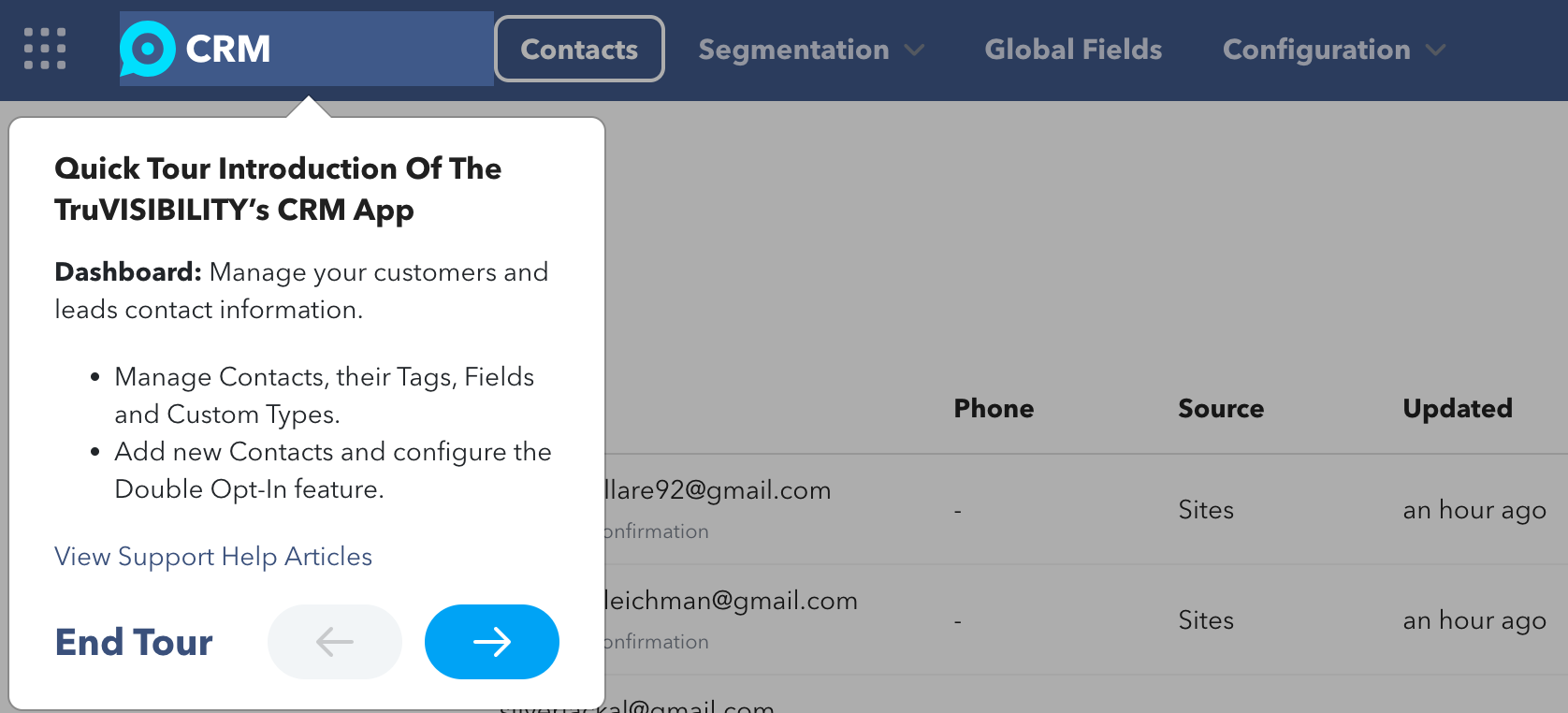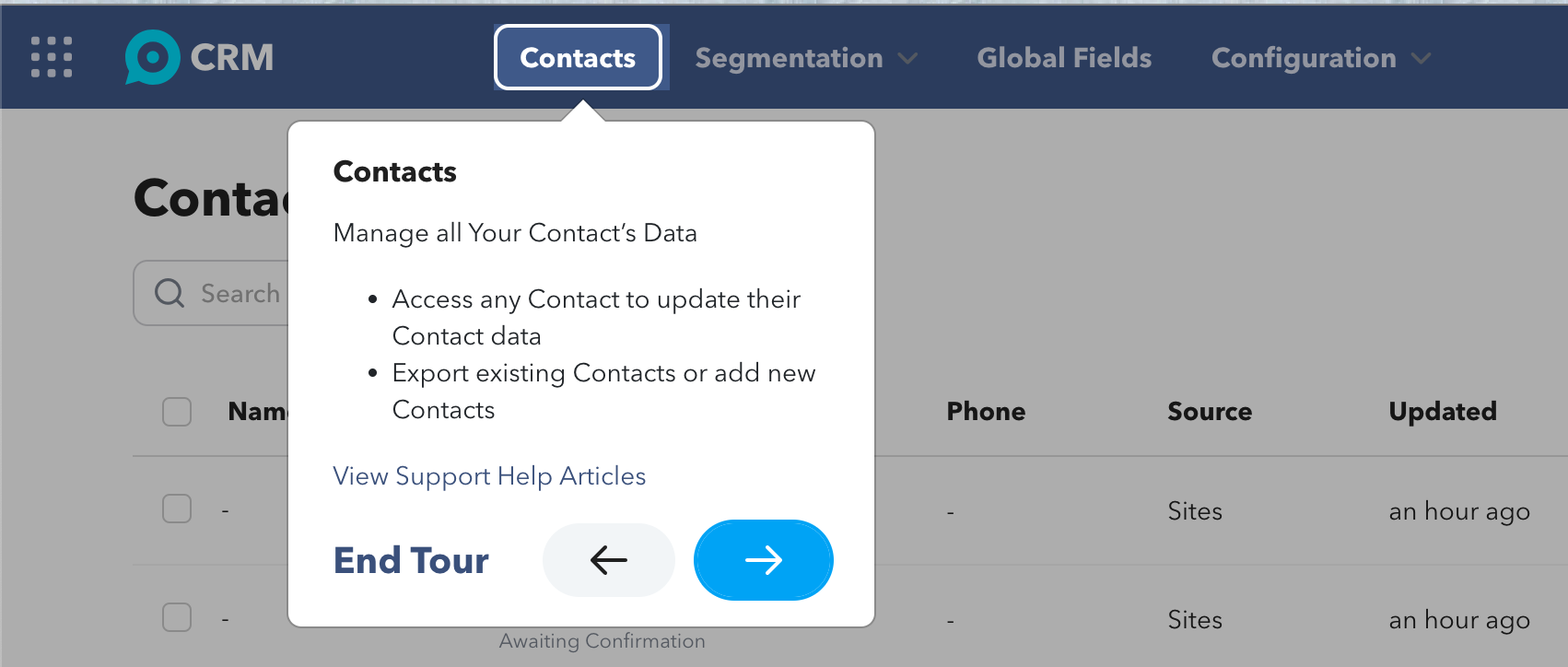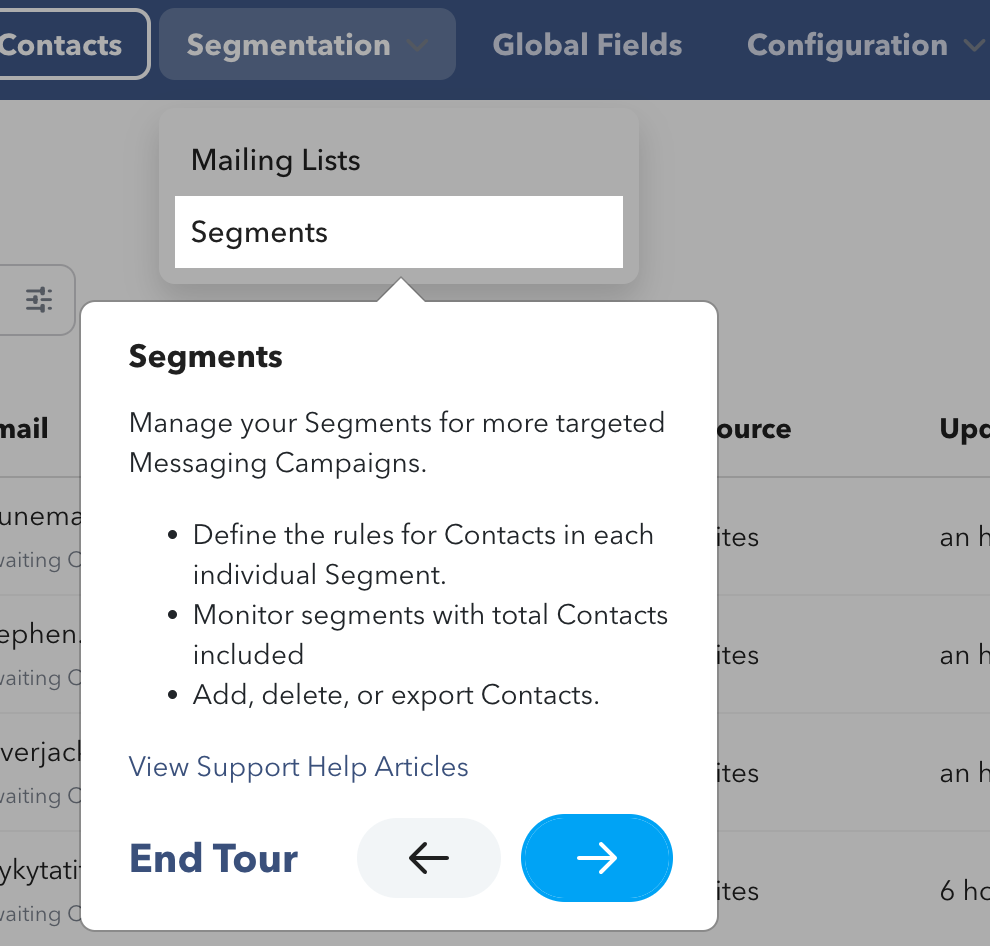Customer Relationship Management (CRM) systems have become indispensable tools for organizations looking to enhance customer interactions and streamline operations. Plus, it helps with marketing campaigns and keeping loyal customers by increasing customer satisfaction. While the fundamental goal of CRM remains the same – fostering meaningful relationships with customers – the application and benefits can vary between e-commerce and service-based businesses.
Let’s uncover the distinct advantages that CRM brings to these two business models, comparing the unique benefits each enjoys. Additionally, we'll explore how TruVISIBILITY's CRM tool can empower both e-commerce and service-based businesses to manage their customer relationships more effectively.
Table of Contents
- Benefits of CRM for E-Commerce Businesses
- Benefits of CRM for Service-Based Businesses
- TruVISIBILITY's CRM Tool
- Implementing TruVISIBILITY's CRM Tool for Maximum Impact
- Conclusion

Benefits of CRM for E-Commerce Businesses
E-commerce businesses are growing more rapidly than standalone brick and mortar stores - and it makes sense. To run a business online where you sell physical products is an enticing and efficient way to run a business. Examples of these types of online stores that can benefit from CRM tools include online clothing stores like Everlane, online-only jewelry stores like Brilliant Earth, pet supplies stores like Chewy, and even food and home goods online stores. Here are some ways CRM tools can specifically help these businesses run smoother and grow.
Enhanced Customer Understanding
E-commerce businesses can leverage CRM to segment their customer base based on various criteria such as purchase history, preferences, and demographics. This segmentation allows for targeted marketing campaigns, ensuring that promotional efforts resonate with specific customer segments.
By tracking customer behavior on their e-commerce platforms, businesses can use CRM data to understand purchasing patterns, product preferences, and browsing habits. This valuable insight enables personalized communication and recommendation strategies.
Improved Marketing Strategies
CRM empowers e-commerce businesses to create personalized marketing campaigns. By analyzing customer data, businesses can send targeted emails, recommend products, and offer promotions tailored to individual preferences, increasing the likelihood of conversions.
CRM systems can automate abandoned cart recovery emails, reminding customers of items left in their carts. This proactive approach helps recover potential sales and reduces cart abandonment rates.
Efficient Order and Inventory Management
CRM integration with e-commerce platforms facilitates seamless order tracking and processing. Businesses can efficiently manage orders, monitor inventory levels, and provide real-time updates to customers, enhancing the overall shopping experience.
CRM data can be used to predict inventory needs and trends, preventing stockouts or overstock situations. This ensures that e-commerce businesses maintain optimal inventory levels and can fulfill customer orders promptly.
Benefits of CRM for Service-Based Businesses
Some examples of service-based businesses include salons and spas, maid services, plumbing and other home services, restaurants, and even hotels and travel businesses. There are plenty of different ways CRM tools can benefit these types of companies.
Streamlined Communication and Collaboration
Unified Customer Database: Service-based businesses benefit from CRM by maintaining a centralized customer database accessible to all departments. This ensures that customer information is consistent across teams, fostering collaboration and improving the quality of customer interactions.
Appointment and Schedule Management: CRM systems for service-based businesses often include features for appointment scheduling and management. This streamlines the booking process, reducing scheduling conflicts and ensuring efficient service delivery.
Here is an example of TruVISIBILITY's CRM tool and the different ways you can manage your customer database.


CRM isn't just for the customers. Businesses can help manage their own employees and utilize the CRM app to help employees work more efficiently, giving them the freedom to work on more pressing tasks. Learn how TruVISIBILITY's CRM is built into every digital marketing app and can help you increase profits, run your business more effectively and smoothly, and have fun doing it.
Enhanced Customer Service
Customer Service Ticketing: CRM tools enable service-based businesses to create and track customer service tickets. This organized system ensures that customer issues are addressed promptly and that teams can track the resolution process effectively.
Customer Feedback and Surveys: Service-based businesses can utilize CRM to collect and analyze customer feedback. By understanding customer satisfaction levels, businesses can identify areas for improvement and enhance their service offerings.
Client Retention and Upselling
Client History Tracking: CRM allows service-based businesses to track the history of client interactions, services provided, and feedback received. This comprehensive view helps businesses tailor their offerings, leading to improved client retention and opportunities for upselling additional services.
Proactive Relationship Management: Service-based businesses can use CRM to set reminders for follow-up communications, ensuring that clients are engaged and satisfied with the services provided. Proactive relationship management is vital for building long-term partnerships.
TruVISIBILITY's CRM Tool
TruVISIBILITY’s CRM was built with all business sizes and industries in mind. Though there are other CRM tools that you can download (and pay for) separately from your other marketing tools, TruVISIBILITY’s CRM can easily integrate with their all-in-one marketing suite as well as a few other popular marketing tools if you so wish. Here are a few ways this CRM tool was built for all businesses:
Unified Customer View
E-commerce Integration: TruVISIBILITY's CRM tool seamlessly integrates with e-commerce platforms, providing a unified view of customer interactions. This integration ensures that businesses can track not only purchase history but also engagement through other communication channels.
Service-Based Functionality: For service-based businesses, TruVISIBILITY's CRM tool offers features tailored to appointment scheduling, service ticketing, and client history tracking. This ensures that the tool aligns with the specific needs of service-oriented industries.
You can see below how TruVISIBILITY's CRM allows you to segment contacts and view contact lists based on any factors or 'fields' you provide.

Advanced Analytics and Reporting
TruVISIBILITY's CRM tool provides customizable dashboards, allowing businesses to focus on the key metrics relevant to their industry. Whether analyzing sales performance or service delivery efficiency, the tool offers a tailored experience.
The CRM tool by TruVISIBILITY enables businesses to gain insights across various communication channels, whether it's email, messaging, or other interactions. This cross-channel visibility is particularly valuable for businesses with diverse customer touchpoints.
Implementing TruVISIBILITY's CRM Tool for Maximum Impact
Integration Process
Businesses looking to integrate TruVISIBILITY's CRM tool with their e-commerce platform should begin with an assessment of their current systems. Data mapping and migration are crucial steps to ensure a smooth transition.
For service-based businesses, the implementation process should focus on aligning the CRM tool with existing service workflows. Training the team on how to utilize the tool for appointment scheduling, ticketing, and client management is essential.
Customization and Optimization
TruVISIBILITY's CRM tool allows businesses to tailor workflows based on their specific needs. Customization ensures that the tool aligns seamlessly with business processes, optimizing efficiency.
Regularly review and optimize CRM processes based on performance metrics and user feedback. This iterative approach ensures that the tool continues to meet evolving business requirements.
Conclusion
In conclusion, while CRM systems share the common goal of enhancing customer relationships, their applications and benefits differ between e-commerce and service-based businesses. E-commerce businesses leverage CRM for customer segmentation, personalized marketing, and efficient order management, while service-based businesses rely on CRM for streamlined communication, enhanced customer service, and client retention.
TruVISIBILITY's CRM tool serves as a versatile solution, bridging the gap between these two business models by providing a unified customer view, advanced analytics, and tailored features for both industries. By embracing CRM technology, businesses can optimize their operations, improve customer satisfaction, and stay competitive in today's dynamic market.
Want to receive more articles?
Sign-up for our weekly newsletter to receive info that will help your business grow



